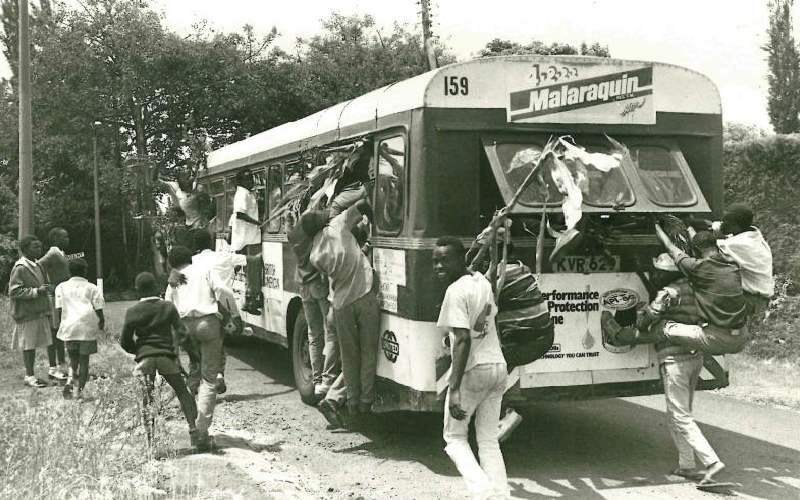×
The Standard e-Paper
Smart Minds Choose Us

Protesters hang on KBS bus during the Saba Saba demonstrations in Nairobi on July 7, 1990. [File, Standard]
Thirty years ago today, on Saturday, July 7, 1990, more than 5,000 citizens of this great nation – fathers, mothers, daughters and sons – were arrested all over the country and many others maimed or killed for daring to utter the word “multiparty”.